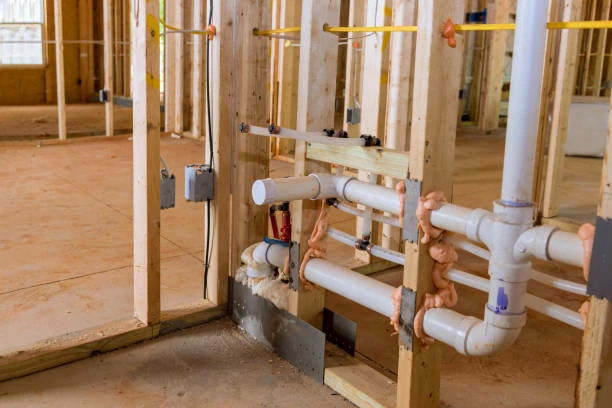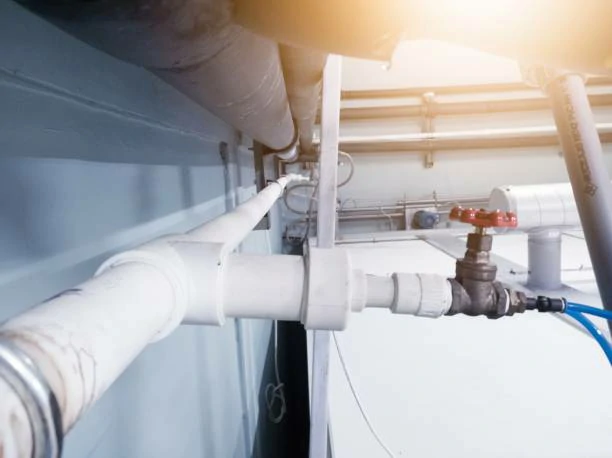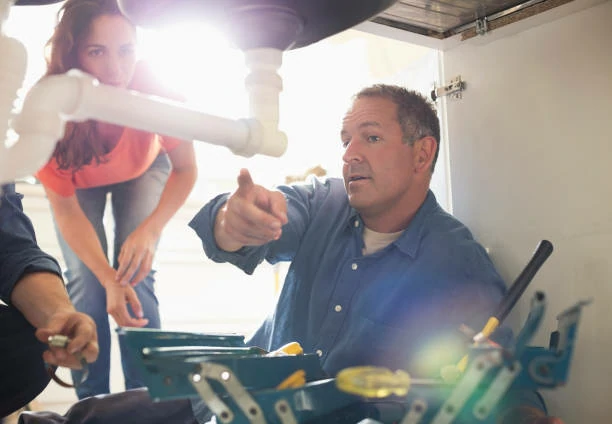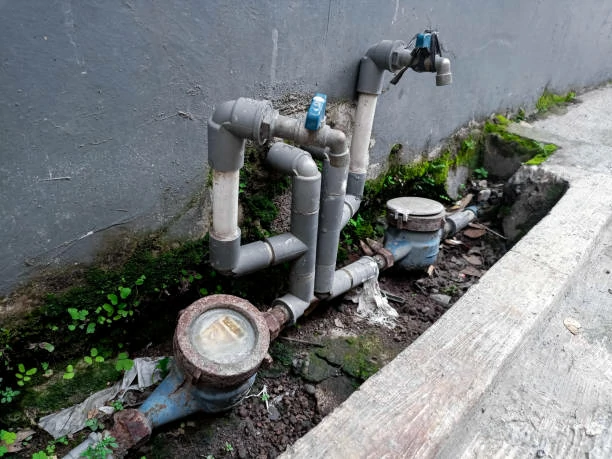UPVC (Unplasticized Polyvinyl Chloride) pipes have emerged as a leading choice for water supply systems due to their numerous advantages over traditional materials. Their characteristics align well with the demands of modern water infrastructure, offering reliable, cost-effective, and efficient solutions for transporting water. This article examines the role of UPVC pipes in water supply systems, highlighting their benefits, applications, installation practices, and overall impact on water distribution.
Advantages of UPVC Pipes
Durability and Strength
UPVC pipes exhibit remarkable durability and strength, essential qualities for water supply systems. They can withstand various pressures and impacts without cracking or breaking. The rigid structure of UPVC makes it suitable for handling the pressures typically encountered in water supply systems. Additionally, UPVC pipes resist physical damage and maintain their integrity even under challenging environmental conditions, such as soil movement or external impacts.
Corrosion and Chemical Resistance
One of the key benefits of UPVC pipes is their resistance to corrosion. Unlike metal pipes that can rust and deteriorate over time, UPVC pipes remain unaffected by water, moisture, or aggressive chemicals. This resistance prevents the contamination of water caused by the leaching of metals, ensuring that the water remains clean and safe for consumption. UPVC pipes also resist chemical reactions with substances found in water, making them suitable for a wide range of water supply applications.
Low Maintenance Requirements
UPVC pipes require minimal maintenance, which contributes to their overall efficiency. The smooth internal surface of UPVC pipes prevents the buildup of scale, sediment, and debris. This smoothness reduces the likelihood of blockages and ensures a consistent flow of water through the system. Minimal maintenance needs translate into lower operational costs and less downtime, enhancing the overall reliability of the water supply system.
Cost-Effectiveness
UPVC pipes offer significant cost advantages, both in terms of initial investment and long-term operational expenses. The cost of them is generally lower than that of metal or concrete pipes, making them an economical choice for water supply systems. Additionally, the low maintenance requirements and durability of them reduce the need for frequent replacements and repairs, further contributing to cost savings over the life of the system.
Applications in Water Supply Systems
Residential Water Supply
In residential settings, UPVC pipes provide a reliable solution for delivering clean water to homes. They are commonly used for both cold and hot water supply lines, offering a durable and cost-effective alternative to metal pipes. UPVC pipes’ resistance to corrosion and chemical reactions ensures that homeowners receive high-quality water without the risk of contamination. Additionally, UPVC pipes’ smooth interior surfaces help maintain consistent water flow and pressure throughout the home.
Municipal Water Distribution
UPVC pipes play a crucial role in municipal water distribution systems, where they handle large volumes of water across extensive networks. Their strength and resistance to corrosion make them suitable for transporting water over long distances and through various environmental conditions. Municipalities benefit from UPVC pipes’ durability and low maintenance requirements, which reduce the frequency of repairs and replacements. The cost-effectiveness of UPVC pipes also supports budget-friendly infrastructure projects.
Irrigation Systems
In agricultural applications, UPVC pipes are widely used for irrigation systems. They efficiently transport water from sources such as wells or reservoirs to fields and crops. The resistance to corrosion and chemicals ensures that the water remains uncontaminated, which is essential for maintaining soil health and crop quality. UPVC pipes’ durability and ease of installation make them a practical choice for irrigation systems, supporting efficient water management and agricultural productivity.
Industrial Water Supply
UPVC pipes also find applications in industrial water supply systems. Their ability to resist chemicals and withstand varying pressures makes them suitable for transporting industrial fluids and water used in manufacturing processes. UPVC pipes help maintain the quality of the water and ensure the smooth operation of industrial facilities. The low maintenance needs and cost-effectiveness of UPVC pipes contribute to the overall efficiency of industrial water supply systems.
Installation Practices
Proper Handling and Storage
During installation, proper handling and storage of them are essential to prevent damage. Pipes should be kept in a shaded area to protect them from prolonged exposure to UV radiation, which can weaken the material. Additionally, pipes should be stored on a flat surface and supported properly to avoid warping or bending.
Jointing Methods
UPVC pipes use various jointing methods, including solvent welding, push-fit systems, and mechanical joints. Solvent welding involves applying a solvent to the pipe and fitting surfaces, creating a strong bond that ensures leak-proof connections. Push-fit systems offer a quick and easy assembly process, allowing pipes to be joined without adhesives or special tools. Mechanical joints use clamps or fittings to secure pipes together, providing flexibility in installation and maintenance.
Pressure Testing
After installation, pressure testing is crucial to ensure the integrity of the UPVC pipe system. Testing involves pressurizing the system to check for leaks or weaknesses. This step helps identify any issues that may need to be addressed before the system becomes operational, ensuring reliable performance and preventing future problems.
Impact on Water Distribution
Improved Water Quality
UPVC pipes contribute to maintaining high water quality by preventing contamination from pipe materials. Their resistance to corrosion and chemical reactions ensures that the water remains clean and free from harmful substances. This benefit is particularly important in drinking water supply systems, where maintaining water purity is crucial for public health.
Enhanced System Efficiency
The smooth internal surface of UPVC pipes reduces friction and resistance, promoting efficient water flow and pressure. This characteristic minimizes the need for additional pumping power and energy consumption, contributing to overall system efficiency. Enhanced water flow helps ensure that water reaches its destination quickly and consistently.
Long-Term Reliability
UPVC pipes offer long-term reliability and performance, reducing the need for frequent repairs and replacements. Their durability and resistance to various environmental factors ensure that the water supply system remains operational for an extended period. This reliability contributes to the overall stability and effectiveness of water distribution networks.
Top 10 UPVC Pipes Manufacturers
| Company Name | Headquarters | Revenue (USD) | Year Founded |
| ChemChina | Haidian District, Beijing, China | 46.5 Billion | 1984 |
| Formosa Plastics Corporation | Kaohsiung City, Taiwan | 36.09 Billion | 1954 |
| Dupont | Midland, Michigan, United States | 21.57 Billion | 1802 |
| LG Chem Ltd | Seoul, South Korea | 20.04 BIllion | 1947 |
| Shin-Etsu Chemical Co., Ltd. | Tokyo, Japan | 14.2 BIllion | 1926 |
| Westlake Chemical Corporation | Houston, Texas, United States | 8.63 Billion | 1986 |
| Axiall | Atlanta, Georgia, United States | 8.6 Billion | 1985 |
| Orbia | Mexico City, Mexico | 6.4 Billion | 1953 |
| Celanese Corporation | Irving, Texas, United States | 6.29 Billion | 1918 |
| PolyOne Corporation | Avon Lake, Ohio, United States | 3.24 Billion | 2000 |
IFAN International Standard for UPVC Pipes
IFAN’s PVC products adhere to a wide range of international standards, ensuring they meet the highest quality and performance criteria. These standards include BS 3505, BS 4346, ASTM D1785 SCH40, ASTM D1785 SCH80, DIN, GB, DWV, ASTM D2665, ASTM D2241, ASTM D2665, ASTM D2729, ASTM F441/F441M, ISO 1452 series, EN ISO 1452, DIN 8061/8062, GB/T 10002 series, AS/NZS 1477, JIS K6741, CSA B137.3, NSF/ANSI 14, and TIS 17-2532/1131-2535. Compliance with these standards ensures that IFAN’s PVC pipes and fittings deliver consistent performance, safety, and reliability in a variety of applications globally.
Conclusion
UPVC pipes provide a range of advantages that make them an excellent choice for water supply systems. Their durability, corrosion resistance, low maintenance needs, and cost-effectiveness make them suitable for residential, municipal, industrial, and agricultural applications. The ease of installation and compatibility with various jointing methods further enhance their practicality. By offering reliable performance and maintaining water quality, UPVC pipes play a crucial role in ensuring efficient and effective water distribution systems.
Contact
IFAN is a professional manufacturer with 30 years of experience, dedicated to producing high-quality plastic pipes, fittings, and valves. Our products include brass valves, PPR valves, as well as various pipes and fittings to meet different customer needs. Whether you need plumbing and drainage pipes or valve products, IFAN can provide a diverse range of high-quality, cost-effective products to support your projects. Below is our contact information.
We will reply your email or fax within 24 hours.
You can call us at any time if there is any question on our production.
For more information,pls visit our webside https://www.ifanplus.com/
Pls Mailto: [email protected]
Whatsapp: + 86 19857948982





